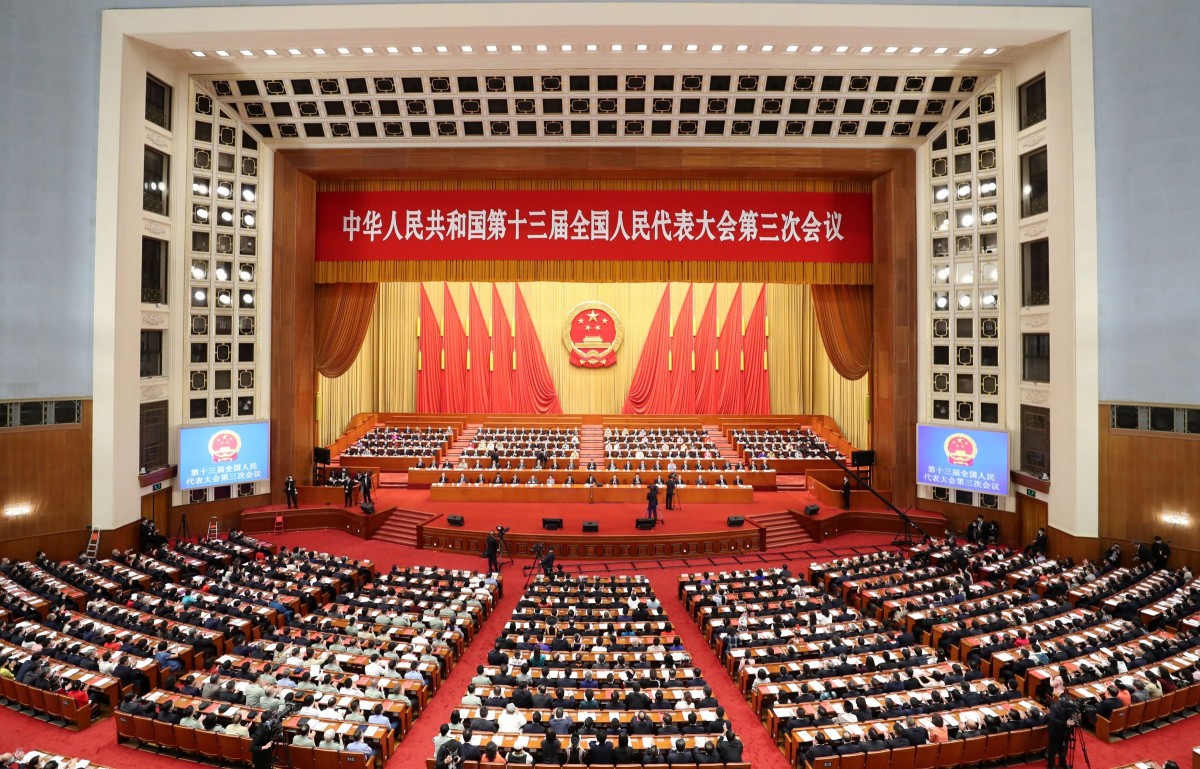China: What To Expect From The ‘Two Sessions’
China's main annual political meetings known as the Two Sessions take place next month, with the Chinese People's Political Consultative Conference (CPPCC) on 4 March and the 13th National People's Congress (NPC) the following day. The government work report is the main focus of the NPC as it will prioritize the policy agenda for 2021, which is the first year of the 14th Five Year Plan. This article previews what we expect and don't expect from the Two Sessions this year.

Background to this year’s Two Sessions
In our note back in November, we discussed the main points of the 14th Five Year Plan of China, and we said that implementation was important. In another note, we analyzed China’s goal of becoming an advanced economy by 2035 – which means approximately doubling its GDP level from 2020 levels. On top of this, China has pledged to become a net-zero CO2 emission economy by 2060.
This year’s Two Session meeting is the first in the 14th Five-Year Plan. The meetings will set out actionable steps to achieve the policies of the five-year plan, doubling of the economy, and decarbonization of the economy.
What we expect from this Two Sessions meeting
From the central economic work conference, we understand that the policy priorities in 2021 will differ from those in 2020. These differences stem from the low number of Covid-19 cases in China and the challenging international politics that affect technology businesses. The government would also like to use the recovery as an opportunity to resume its deleveraging reform, but it needs to ensure that domestic demand continues to grow sufficiently to offset the economic losses from these reforms. Policy actions will also include a roadmap on how to achieve carbon neutrality by 2060.
Table: comparison of top 5 policy priorities in 2021 vs 2020
Source: ING
No GDP growth target
With Covid-19 outside China still widespread, the proliferation of new virus variants, uncertainty over the effectiveness of the current cohort of Covid vaccines, and ongoing international tensions affecting Chinese companies, it is difficult to see how the Two Meetings will be able to set a GDP growth target. Instead, the government will place a greater emphasis on “high quality” growth.
Although we may not get a GDP growth target from the Two Sessions, we forecast GDP to grow 7% in 2021. This is largely due to the low base of only 2.3% growth in 2020. Structurally, we do not think the economy will change a lot. Domestic demand is still likely to act as the economy’s main stabilizer, while external demand could still be fragile as key export destinations slowly reopen after the pandemic. International politics could continue to have important impacts on Chinese business.
Impact on the market
As the market, in general, is not expecting a GDP target from the meetings, it would not come as a surprise if none were provided. A clear action plan on the top priorities would be more important for the market to evaluate the impact on industries and the whole economy. The worst-case scenario would be a lack of clear direction on how to achieve the objectives set by the Two Sessions, which would create market uncertainty and doubt.
We expect a clear roadmap for self-sufficiency of advanced technology and achieving carbon neutrality. And we expect some investment numbers and timelines from the Two Sessions.
But action points on the other items could be less clear. For example, deleveraging reform has already resumed, but the risk of deleveraging too much too fast is high, and we don’t think the government can commit to eliminating companies with high leverage ratios. That will be almost impossible.
Another example is strengthening anti-monopoly regulations. What is quite clear is that for now, the government really means privately-owned fintech. But after this round of clean-up, it could be companies in other sectors that find themselves in the firing line.
Disclaimer: This publication has been prepared by ING solely for information purposes irrespective of a particular user's means, financial situation or investment objectives. The information does ...
more


